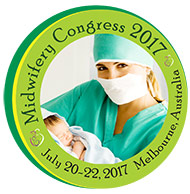4th World Congress on Midwifery and Women’s Health

Aamir Nadeem
Bridge Consultants Foundation, Pakistan
Title: Social Determinants of HIV Transmission among Women in Karachi, Pakistan
Biography
Biography: Aamir Nadeem
Abstract
Statement of the Problem: Almost 30 years into the HIV epidemic, women account for nearly half of the 36.7 million people living with HIV worldwide, with an even higher proportion in developing countries. Apart of sub-Saharan Africa, women are at least twice more likely to acquire HIV from men during sexual intercourse than vice versa. The aim of the study was to identify the social determinants of HIV transmission among women in Karachi, Pakistan.
Data were obtained and analyzed from a community home based center (CHBC) site established in Karachi with support of the Global Fund to Fight AIDS, Tuberculosis and Malaria (Global Fund) to provide medical and social services to people living with HIV (PLHIV). These data included primary social determinants for acquiring HIV like age, sex, education level, income, social status, homelessness, access to healthcare and opportunities for HIV testing as women.
Between March 2012 and September 2016, we recruited 424 PLHIVs of whom 31 (7.3%) were women. Their mean age was 30.3 years and average years of education was 5 years. All 31 women were married and were economically dependent on their husbands. All 31 women were living with their husbands and children. Although all of them had access to healthcare, perceived stigma and discrimination led to difficulties in accessing needed facilities and voluntary HIV testing. None of the 31 PLHIV women knew HIV status of their spouses at the time of their own HIV testing. HIV-infected women registered at CHBC in Karachi were married and economically dependent, and poorly literate, presenting challenges in accessing care. The social determinants related to acquiring HIV among women include poor communication and gender-power relationships with spouses. Strategic interventions can be developed to empower Pakistani women for prevention, testing, and treatment access

